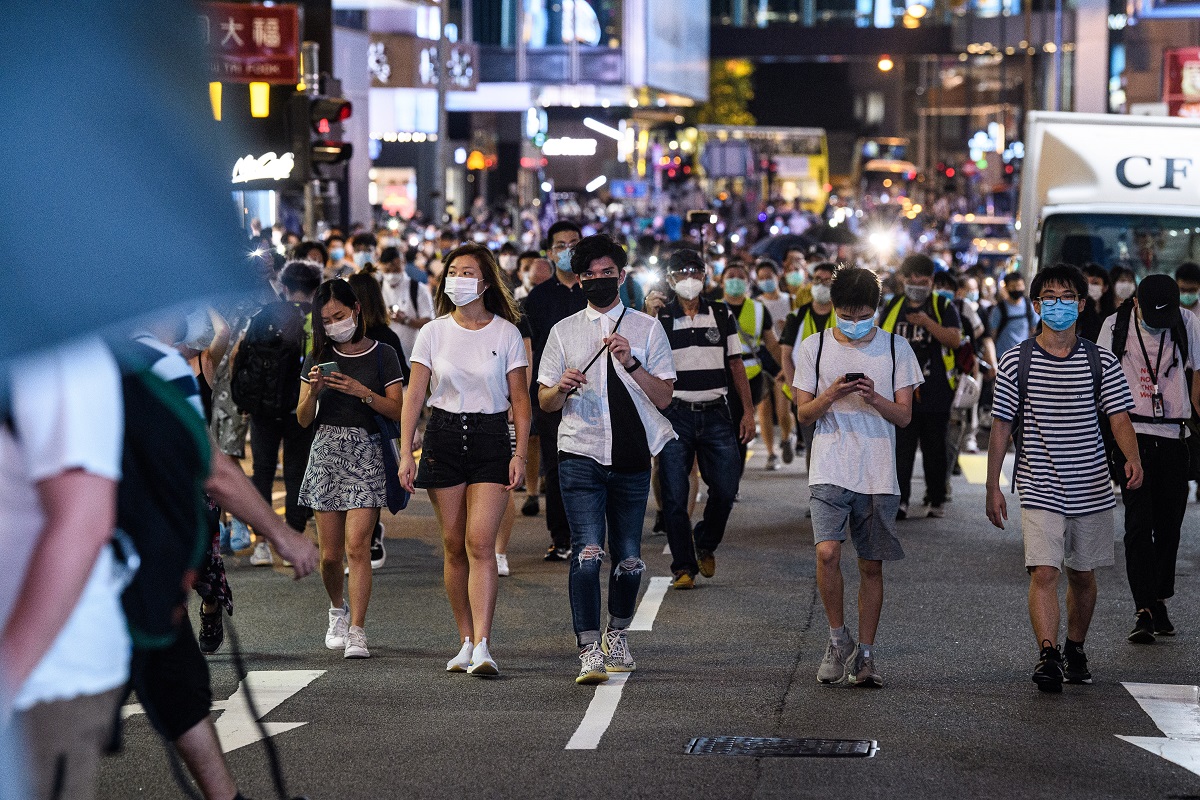Electoral system: A reforms bus missed
By its judgments in the Public Interest Foundation and Lok Prahari cases, the apex court missed an opportunity to cleanse our electoral system, argue Afroz Alam and Yogesh Pratap Singh.
Restoration of democracy must seem to be of lesser moment in the overall construct. So when the chief executive, Carrie Lam, warmly welcomes the charter of reforms, she merely plays to the Beijing gallery soon after her visit to the mainland. By amending Annex I and Annex II of the Basic Law of Hong Kong, the composition of the Legislative Council (LegCo) and the Election Committee (EC), which is responsible for electing the Chief Executive, would be drastically adjusted.

Pro-democracy protesters march in the Central district of Hong Kong (Photo: AFP)
The draft decision of the National People’s Congress (NPC) to “improve” the electoral system of the Hong Kong Special Administrative Region may, on the face of it, appear to be an essay to address the raging movement for democracy.
Actually, however, China is poised to turn the screws on its protectorate further still. The objective is to rewrite the election rules in order to ensure that a system of “patriots will govern Hong Kong”.
Advertisement
Restoration of democracy must seem to be of lesser moment in the overall construct. So when the chief executive, Carrie Lam, warmly welcomes the charter of reforms, she merely plays to the Beijing gallery soon after her visit to the mainland. By amending Annex I and Annex II of the Basic Law of Hong Kong, the composition of the Legislative Council (LegCo) and the Election Committee (EC), which is responsible for electing the Chief Executive, would be drastically adjusted.
Advertisement
A new vetting mechanism is on the anvil to screen every candidate contesting for the office of the Chief Executive, membership of the Legislative Council and the District Councils. There is little doubt that the electoral reforms programme is a move to further curb the influence of the opposition pro-democracy camp in the wake of the widespread anti-government protests of 2019 and the electoral landslide in the District Council election.
Ever since the transfer of sovereignty over Hong Kong from Britain to China in 1997, the democratic movement has called for genuine universal suffrage in elections as envisaged by Article 45 and Article 68 of the Basic Law of Hong Kong. As it turned out, the constitutional reform framework laid by the National People’s Congress Standing Committee (NPCSC) on 31 August 2014 dashed the hopes of the democracy activists striving for the right to direct elections, and this triggered the 79-day Occupy protests. The movement for democracy in Hong Kong had stagnated since then, while a new localist and independence movement was on the rise.
Hong Kong’s national security law, the postponement of the 2020 legislative election, and the 2021 arrests of participants in the island nation’s pro-democracy primaries combined to provide the backdrop for the NPC standing committee to unilaterally impose the sweeping Hong Kong national security law to criminalise “separatism, subversion, terrorism and foreign interference”.
Clearly, this was a crackdown on civil liberties, government critics, and the independence movement. In July 2021, Chief Executive Carrie Lam abruptly invoked the Emergency Regulations Ordinance to postpone the election, citing the resurgence of Covid-19 cases.
However, the decision was widely seen as the latest in a rapid series of aggressive moves by the Beijing authorities to thwart the opposition upsurge and neutralise the pro-democracy movement. Elections are now set to be held on China’s terms dictated by the Communist Party of China and the People’s Liberation Army, the latter on occasion stationed in Hong Kong.
Advertisement